Welcome to the Amira-Avizo Software Use Case Gallery
Below you will find a collection of use cases of our 3D data visualization and analysis software. These use cases include scientific publications, articles, papers, posters, presentations or even videos that show how Amira-Avizo Software is used to address various scientific and industrial research topics.
Use the Domain selector to filter by main application area, and use the Search box to enter keywords related to specific topics you are interested in.
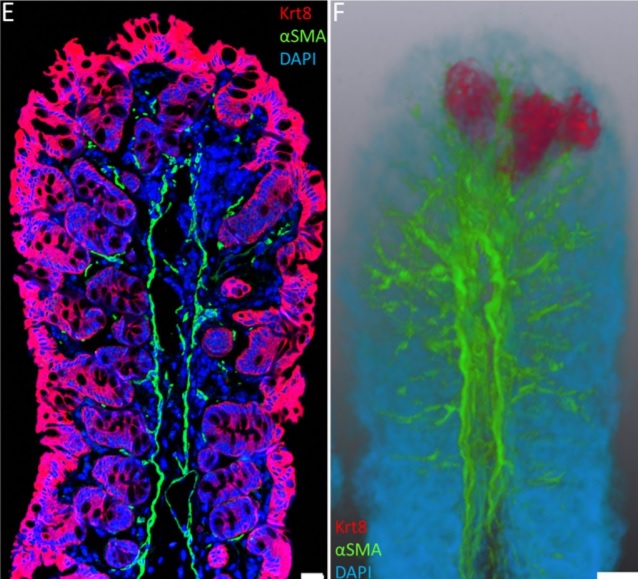
Immunofluorescence tomography is a high-resolution 3-D reconstruction method based on methacrylate embedding and serial-sectioning, where 2-D images of immuno-stained serial-sections are computationally aligned into image stacks, and the 3-D volume rendered. Butyl-Methyl Methacrylate (BMMA) plastic was adopted as it preserves excellent tissue morphology and can be de-plasticized easily using an organic solvent, which enables immuno-staining of serial-sections without antibody penetration issu... Read more
Parfitt, Geraint J
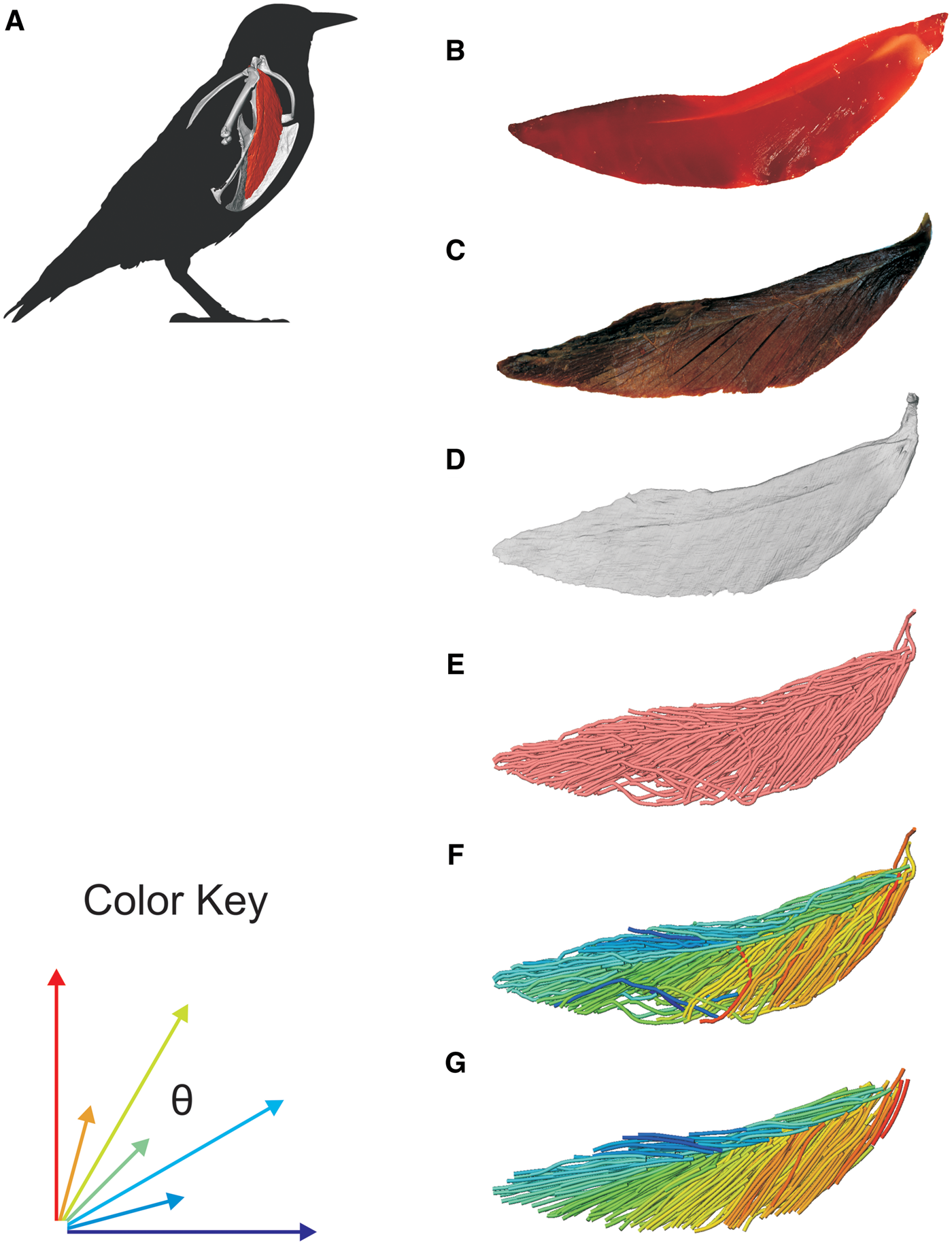
3D Muscle Architecture of the Pectoral Muscles of European Starling (Sturnus vulgaris)
Avian flight is achieved through a number of modifications to the body, including the pectoral girdle (…). Muscle architecture is a critical variable in determining the biomechanical function of the vertebrate musculoskeletal system; however, accurate three-dimensional (3D) understanding of muscle architecture has been historically difficult to acquire. Here, we present a musculoskeletal model of a European starling (Sturnus vulgaris) pectoral girdle generated from iodine contr... Read more
S.P. Sullivan, F.R. McGechie, K.M. Middleton, C.M. Holliday
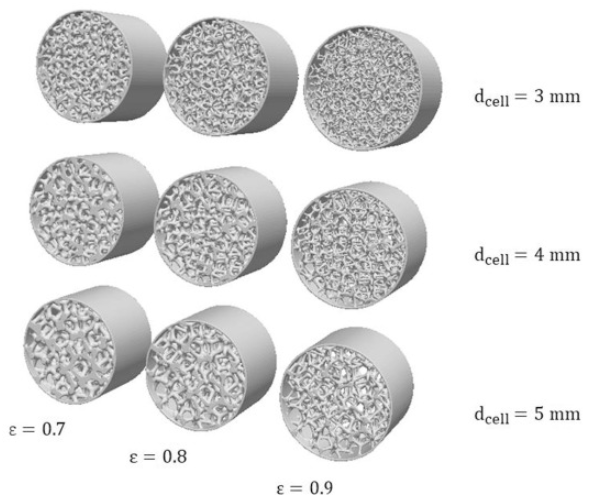
Open-cell foams as structured catalyst supports are promising candidates for the design of high throughput catalytic processes. In this contribution, we employ a coupled numerical and experimental approach to assess the pressure losses in foams. (…) we explore virtually-generated foam models and their 3D printed replicas for a combined CFD and experimental study of fluid dynamics in foams. In particular, we focus our analysis on the low Reynolds number regime, where deviations between t... Read more
Mauro Bracconi, Matteo Ambrosetti, Obinna Okafor, Victor Sans, Xun Zhang, Xiaoxia Ou, Claudio Pereira Da Fonte, Xiaolei Fan, Matteo Maestri, Gianpiero Groppi, Enrico Tronconi
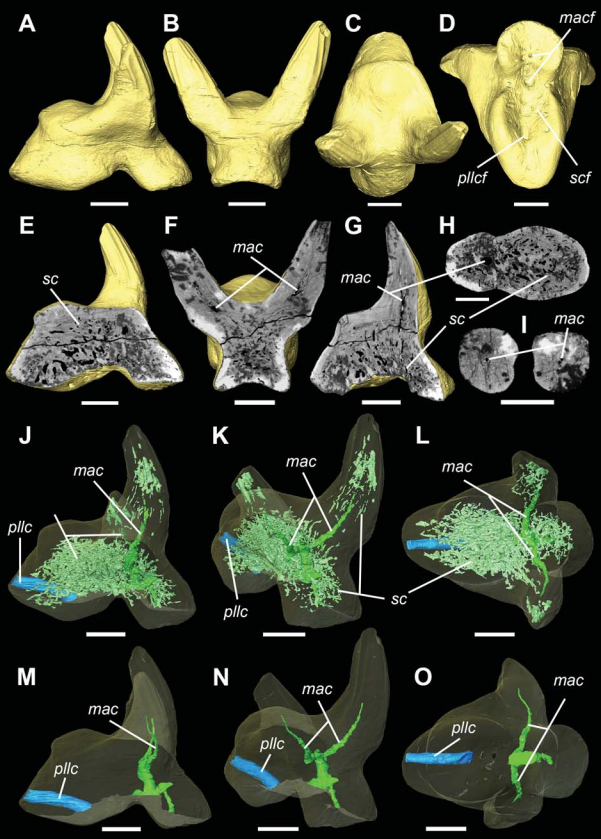
Vascular structure of the earliest shark teeth
Here we use synchrotron tomography to characterise dental vasculature in the oldest known tooth-bearing sharks, Leonodus carlsi Mader, 1986 and Celtiberina maderi Wang, 1993. Three dimensional reconstruction of the vascular system and microstructure of both taxa revealed a complex and dense network of canals, including horizontal, ascending and secondary bifurcated canals, as well as histological features consistent with an osteodont histotype. However, L. carlsi and C. maderi also exhibit si... Read more
Carlos Martinez-Perez, Alba Martin-Lazaro, Humberto G Ferron, Martina Kirstein, Philip C.J. Donoghue, Hector Botella
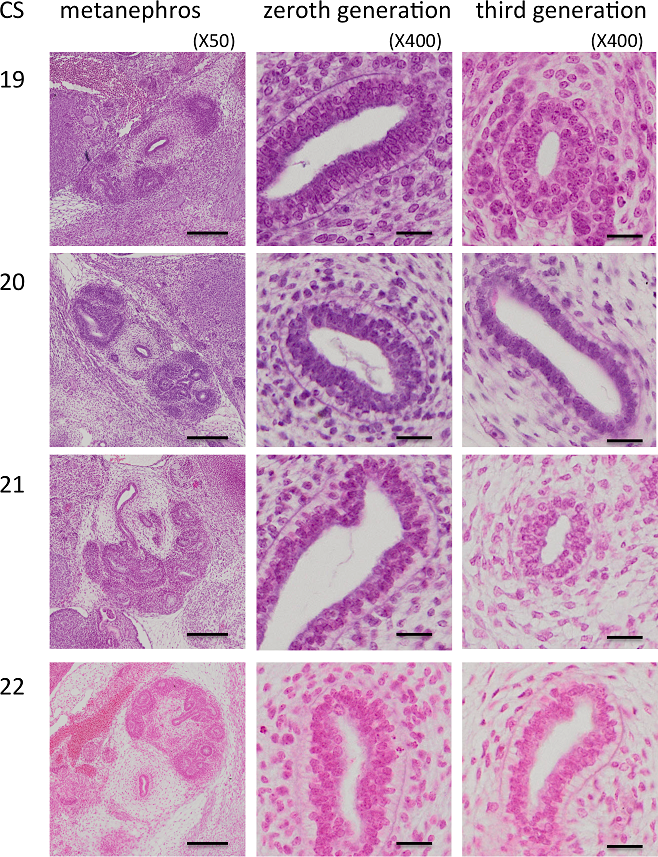
Branching morphogenesis of the urinary collecting system in the human embryonic metanephros
An elaborate system of ducts collects urine from all nephrons, and this structure is known as the urinary collecting system (UCS). This study focused on how the UCS is formed during human embryogenesis. Fifty human embryos between the Carnegie stage (CS) 14 and CS23 were selected from the Kyoto Collection at the Congenital Anomaly Research Center of Kyoto University, Japan. Metanephroses, including the UCS, were segmented on serial digital virtual histological sections. Three-dimensional imag... Read more
Hana Ishiyama, Aoi Ishikawa, Haruka Kitazawa, Sena Fujii, Jun Matsubayashi, Shigehito Yamada, Tetsuya Takakuwa
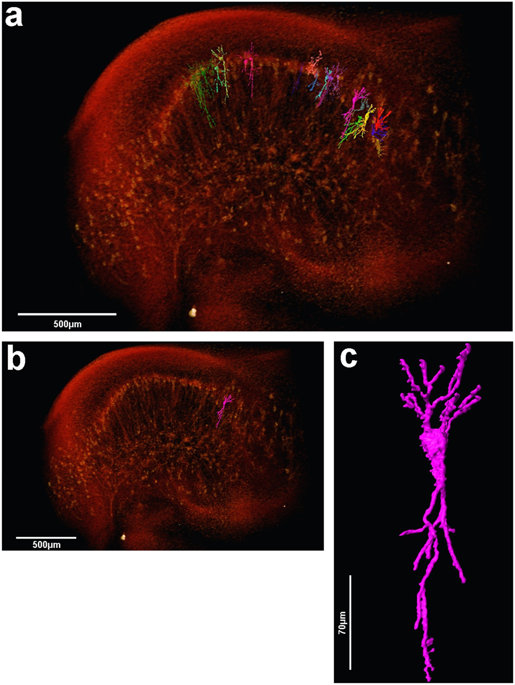
The assessment of neuronal number, spatial organization and connectivity is fundamental for a complete understanding of brain function. However, the evaluation of the three-dimensional (3D) brain cytoarchitecture at cellular resolution persists as a great challenge in the field of neuroscience. In this context, X-ray microtomography has shown to be a valuable non-destructive tool for imaging a broad range of samples, from dense materials to soft biological specimens, arisen as a new method fo... Read more
Matheus de Castro Fonseca, Bruno Henrique Silva Araujo, Carlos Sato Baraldi Dias, Nathaly Lopes Archilha, Dionísio Pedro Amorim Neto, Esper Cavalheiro, Harry Westfahl Jr, Antônio José Roque da Silva, Kleber Gomes Franchini
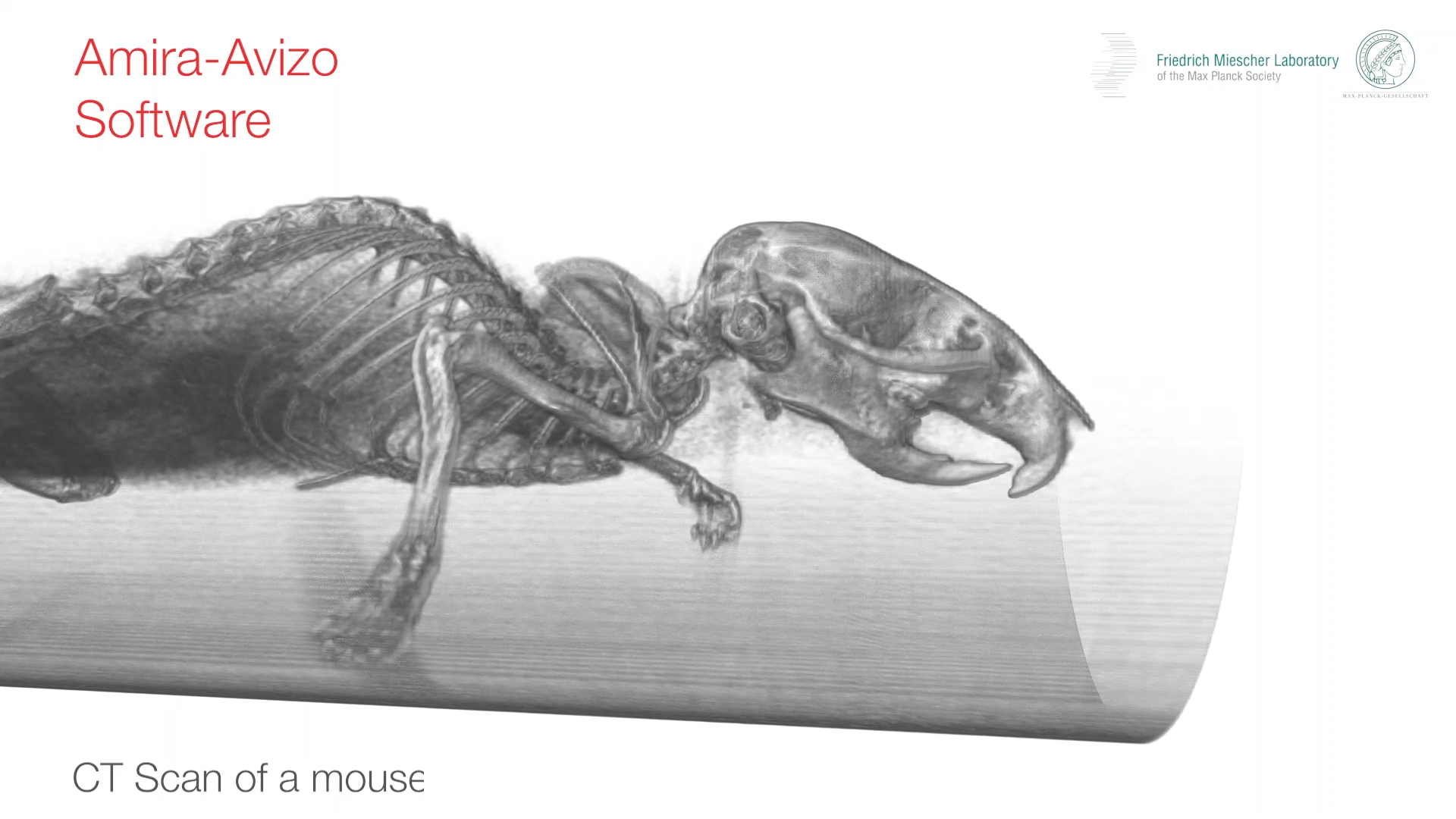
The Faroe Islands are a group of islands in the North Atlantic that are known for its natural beauty, Viking culture and a special population of house mouse. The Faroese house mouse from the most remote island of the Faroese, Mykines (population: 10 people), looked so distinct when it was discovered that it was declared a subspecies, Mus musculus faeroenesis. These mice are large-bodied and showed an extreme form of left-right asymmetry in its skull. Our research group has... Read more
Yingguang Frank Chan, William H. Beluch, Rémi Blanc
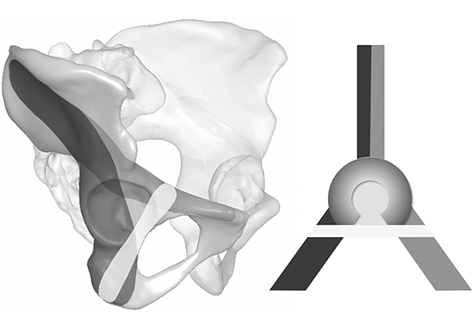
Acetabular fracture surgery is directed toward anatomical reduction and stable fixation to allow for the early functional rehabilitation of an injured hip joint. Recent biomechanical investigations have shown the superiority of using an additional screw in the infraacetabular (IA) region, thereby transfixing the separated columns to strengthen the construct by closing the periacetabular fixation frame. However, the inter-individual existence and variance concerning secure IA screw corridors a... Read more
Stephan Arlt, Hansrudi Noser, Andreas Wienke, Florian Radetzki, Gunther Olaf Hofmann, Thomas Mendel
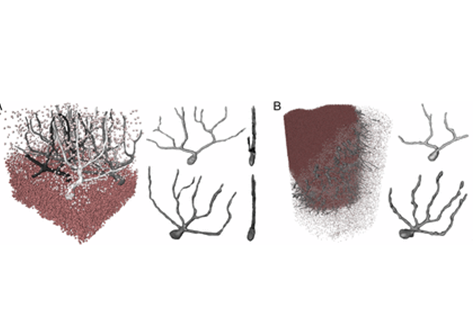
Three-dimensional virtual histology of human cerebellum by X-ray phase-contrast tomography
To quantitatively evaluate brain tissue and its corresponding function, knowledge of the 3D cellular distribution is essential. The gold standard to obtain this information is histology, a destructive and labor-intensive technique where the specimen is sliced and examined under a light microscope, providing 3D information at nonisotropic resolution. To overcome the limitations of conventional histology, we use phase-contrast X-ray tomography with optimized optics, reconstruction, and image an... Read more
Mareike Töpperwien, Franziska van der Meer, Christine Stadelmann, and Tim Salditt
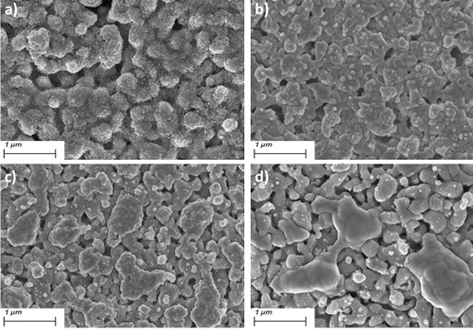
The electrochemical performance of Ni-YSZ SOFC anodes can quickly degrade during redox cycling. Mechanical damage at interfaces significantly decreases the number of active triple phase boundaries. This study firstly focuses on the sintering temperature impact on YSZ scaffold mechanical properties. The YSZ scaffold sintered at 1200 °C exhibited 56% Read more
B.Song; E.Ruiz-Trejo; N.P.Brandon
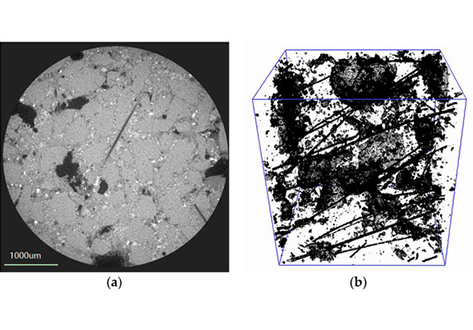
In this study, chemically bonded phosphate ceramic (CBPC) fiber reinforced composites were made at indoor temperatures. The mechanical properties and microstructure of the CBPC composites were studied. The CBPC matrix of aluminum phosphate binder, metakaolin, and magnesia with different Si/P ratios was prepared. The results show that when the Si/P ratio was 1.2, and magnesia content in the CBPC was 15%, CBPC reached its maximum flexural strength. The fiber reinforced CBPC composites were prep... Read more
Zhu Ding; Yu-Yu Li; Can Lu; Jian Liu
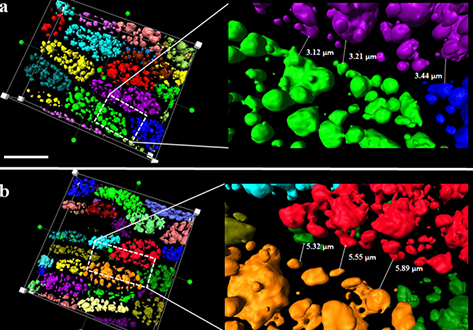
3D Reconstruction of Lipid Droplets in the Seed of Brassica napus
Rapeseed is one of the most important and widely cultured oilseed crops for food and nonfood purposes worldwide. Neutral lipids are stored in lipid droplets (LDs) as fuel for germination and subsequent seedling growth. Most of the LD detection in seeds was still in 2D levels, and some of the details might have been lost in previous studies. In the present work, the configuration of LDs in seeds was obtained by confocal imaging combined with 3D reconstruction technology in Brassica napus<... Read more
Yongtai Yin, Liangxing Guo, Kang Chen, Zhenyi Guo, Hongbo Chao, Baoshan Wang, and Maoteng Licorresponding author
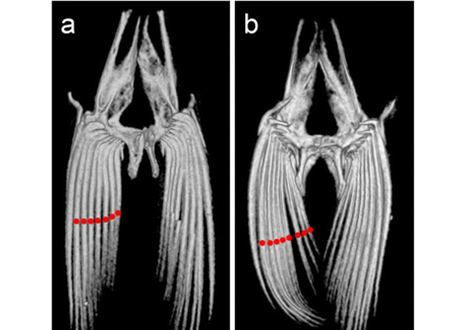
The morphological diversity of Garra barreimiae
Garra barreimiae (Fowler and Steinitz, Bull Res Counc Isr 5B:262–289, 1956) is a freshwater fish that lives throughout the Hajar Mountains of Oman and the United Arab Emirates. Previously, four different genetic clades (West clade, C... Read more
Arthur Pichler; Harald Ahnelt; Sandra Kirchner; Helmut Sattmann; Elisabeth Haring; Stephan Handschuh; Jörg Freyhof; Reginald Victor; Luise Kruckenhauser
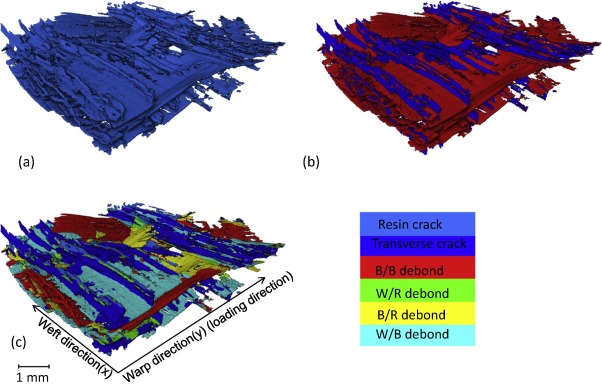
Three dimensional (3D) composites were proposed over 40 years ago in an attempt to overcome the shortcomings of 2D laminates, by incorporating fibres into the through-thickness direction. 3D weaving offer significant manufacturing benefits as well as creating versatile textiles having a range of 3D architectures.
The development of fatigue damage in a glass fibre modified layer-to-layer three dimensional (3D) woven composite has been followed by time-lapse X-ray computed tomograp... Read more
B. Yu, R. Blanc, C. Soutis, P.J. Withers
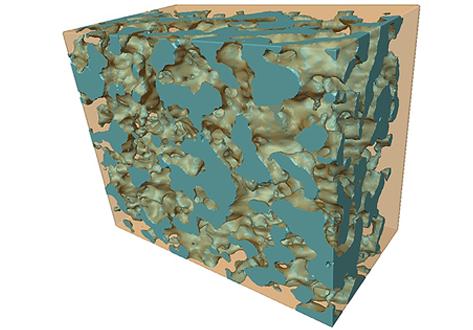
A simple chemical bath deposition is used to coat a complex porous ceramic scaffold with a conformal Ni layer.
The resulting composite is used as a solid oxide fuel cell electrode, and its electrochemical response is measured in humidified hydrogen. X‐ray tomography is used to determine the microstructural characteristics of the uncoated and Ni‐coated porous structure, which include the surface area to total volume, the radial pore size, and the size of the necks between the pores.... Read more
Dr. Enrique Ruiz‐Trejo, Milla Puolamaa, Brian Sum, Dr. Farid Tariq, Dr. Vladimir Yufit, Prof. Nigel P. Brandon
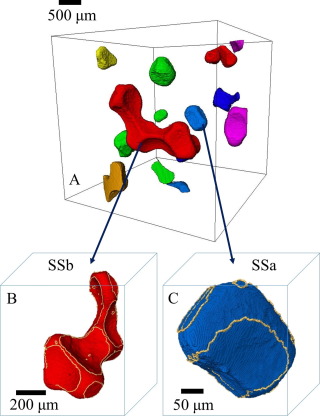
Multiphase flow in porous media is strongly influenced by the wettability of the system, which affects the arrangement of the interfaces of different phases residing in the pores.
We present a method for estimating the effective contact angle, which quantifies the wettability and controls the local capillary pressure within the complex pore space of natural rock samples, based on the physical constraint of constant curvature of the interface between two fluids. This algorithm is ... Read more
Alessio Scanziani, Kamaljit Singh, Martin J. Blunt, Alberto Guadagnini
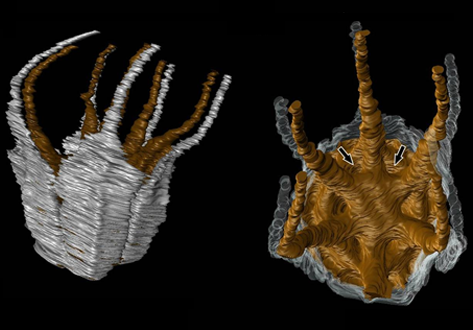
Angiosperm-dominated floras of the Late Cretaceous are essential for understanding the evolutionary, ecological, and geographic radiation of flowering plants.
The Late Cretaceous–early Paleogene Deccan Intertrappean Beds of India contain angiosperm-dominated plant fossil assemblages known from multiple localities in central India. Numerous monocots have been documented from these assemblages, providing a window into an important but poorly understood time in their diversification. On... Read more
Kelly K.S. Matsunaga, Selena Y. Smith, Steven R. Manchester, Dashrath Kapgate, Deepak Ramteke, Amin Garbout, and Herminso Villarraga-Gómez
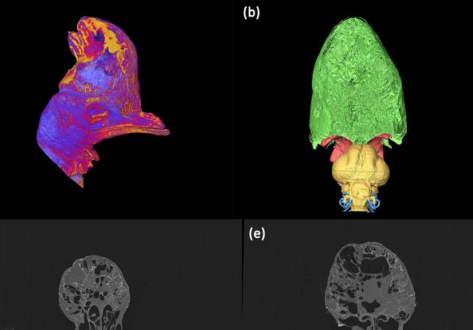
Cranial ornaments such as keratinous horns and bony casques are commonplace amongst birds and take a variety of diverse forms. Possible functions include display, thermoregulation, vocalisation and intraspecific combat, yet few hypotheses have been directly tested. Here we investigate the anatomy and mechanics of the casque of the Southern Cassowary (Casuarius casuarius), and test functional hypotheses using CT-based virtual dissection.
In particular, we determine the nature of pneumat... Read more
Charlotte A. Brassey , Thomas O’Mahoney
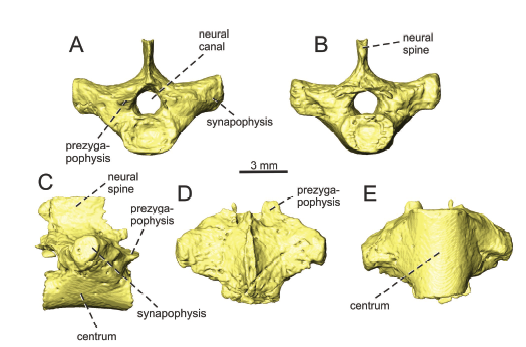
An eosauropterygian skeleton found in the Middle Triassic (upper Anisian) Gutenstein Formation of the Fatric Unit (Demänovská dolina Valley, Low Tatra Mountains, Slovakia) represents the earliest known occurrence of marine tetrapods in the Western Carpathians. The specimen represents a partly articulated portion of the postcranial skeleton (nine dorsal vertebrae, coracoid, ribs, gastral ribs, pelvic girdle, femur and one zeugopodial element). It is assigned to the Pachypleurosauria, more pr... Read more
ANDREJ ČERŇANSKÝ, NICOLE KLEIN, JÁN SOTÁK, MÁRIO OLŠAVSKÝ, JURAJ ŠURKA, and PAVEL HERICH
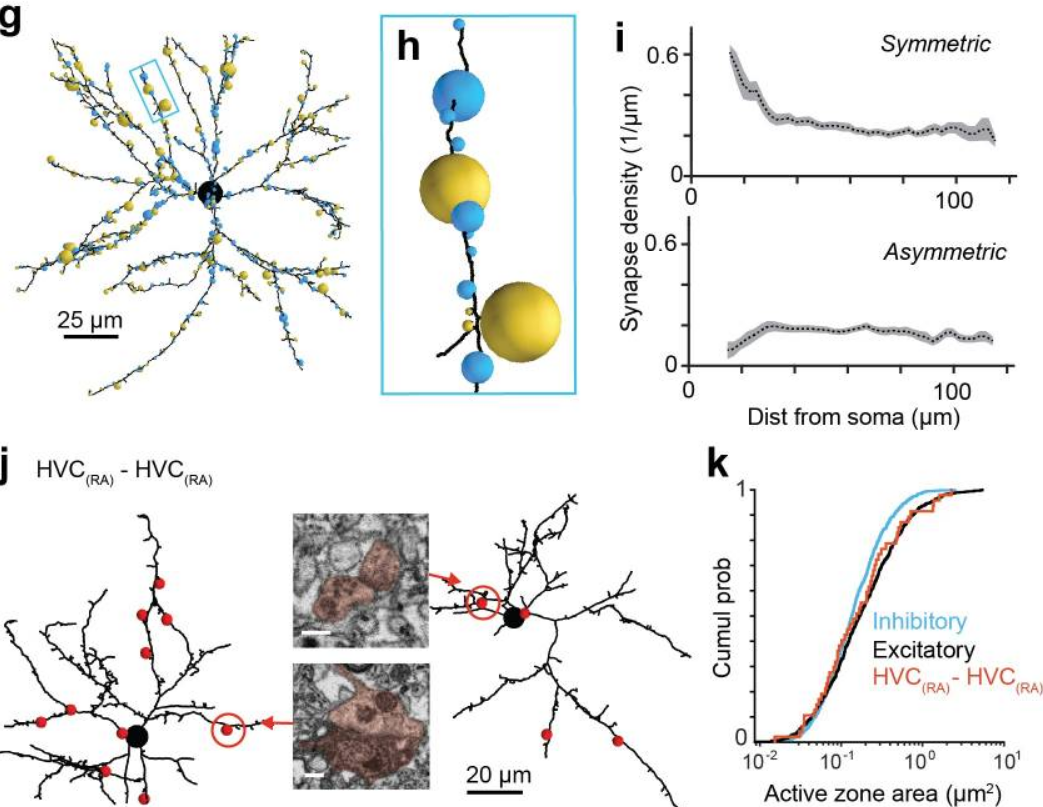
EM connectomics reveals axonal target variation in a sequence-generating network
The sequential activation of neurons has been observed in various areas of the brain, but in no case is the underlying network structure well understood. Here we examined the circuit anatomy of zebra finch HVC, a cortical region that generates sequences underlying the temporal progression of the song. We combined serial block-face electron microscopy with light microscopy to determine the cell types targeted by HVC(RA) neurons, which control song timing. Close to their soma, axons... Read more
Jörgen Kornfeld, Sam E Benezra, Rajeevan T Narayanan, Fabian Svara, Robert Egger, Marcel Oberlaender, Winfried Denk, Michael A Long

The terrestrial Judith River Formation of northern Montana was deposited over an approximately 4 Myr interval during the Campanian (Late Cretaceous). Despite having been prospected and collected continuously by palaeontologists for over a century, few relatively complete dinosaur skeletons have been recovered from this unit to date. Here we describe a new genus and species of ankylosaurine dinosaur, Zuul crurivastator, from the Coal Ridge Member of the Judith River Formation, based ... Read more
Victoria M. Arbour, David C. Evans